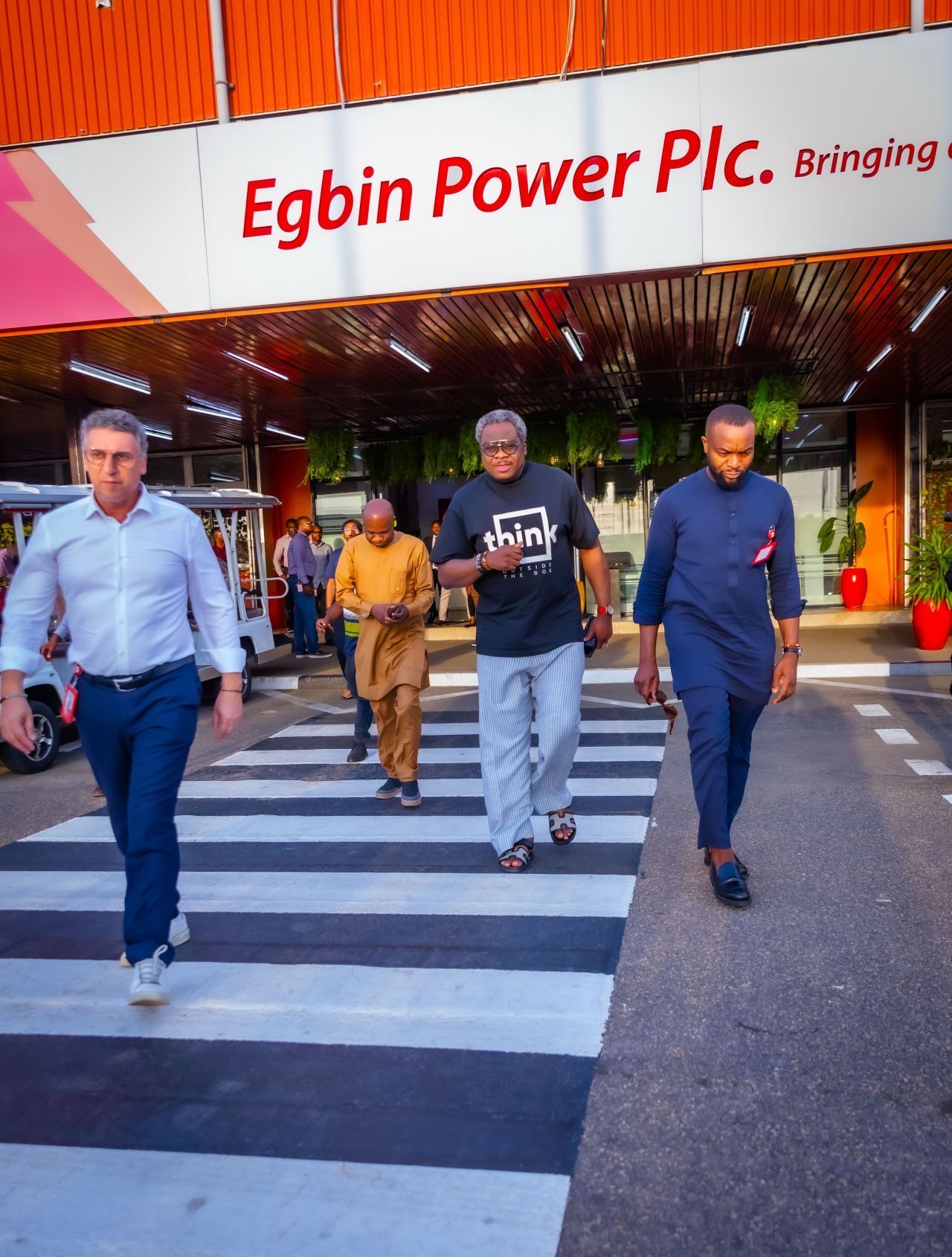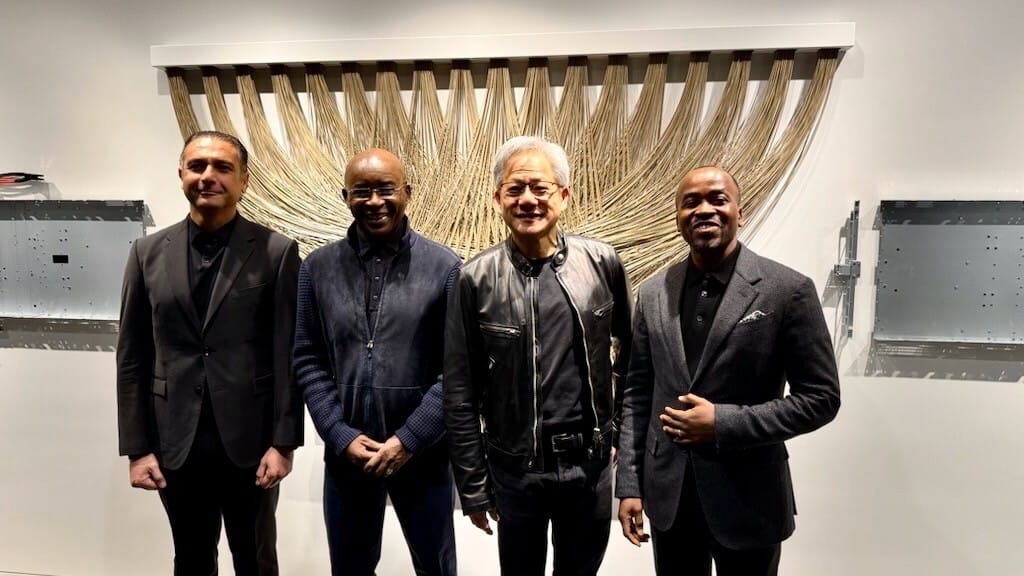- Intellery
- Posts
- African leaders unite around AI-powered future
African leaders unite around AI-powered future
PLUS: Cassava Technologies partners with Nvidia to establish Africa’s first AI factory


Weekly Roundup
Hi Ayodele here,
There has never been a more important time to talk about artificial intelligence in Africa. Every week, we are seeing some good progress; from new policies and education programs to bold infrastructure moves and continent-wide collaborations. Some efforts are experimental, others are strategic, but all of them reflect a growing trend: Africa wants to be more than just a consumer of AI. It wants to help shape it.
In this first edition, we explore what that future might look like, starting with Nigeria’s big bet on data infrastructure, Zimbabwe’s ambitious partnership with Nvidia, Zambia’s AI fight against malaria, and a major AI summit in Kigali that called for a united African front.
Let us dive in
Around Africa
Egbin Power to host Nigeria’s national data park and compute infrastructure
Let’s start with Nigeria. Last year, Nigeria made a big bet on AI by developing its National AI Strategy. It was considered a bold move, especially given the many pressing challenges Nigeria is facing. There are still mixed reactions about whether investing in AI at this time is the right priority.

Just last week, the government announced what could be described as a major "power" play. It revealed plans to establish a National Data Park and Compute Infrastructure at Egbin Power Plant, the largest privately-run power facility in Sub-Saharan Africa.
It definitely sounds big. But what does it really mean?
Let’s break it down.
This move is focused on building a homegrown digital backbone for Nigeria. It aims to create a centralized hub where data can be stored, processed, and managed locally. Think of it as large-scale cloud services combined with high-performance computing to support various technology use cases including AI systems, all linked to a stable power source.
By locating it within a power plant, Nigeria is addressing one of its biggest infrastructure challenges: electricity. This setup ensures a steady power supply for the computing infrastructure, helping the country rely less on expensive offshore servers and gain more control over its data and digital future.
Why it matters?
The Data Park is expected to play a major role in accelerating Nigeria’s AI and cloud ambitions, supporting various industries and use cases. If successful, it could significantly reduce the country’s dependence on offshore technology services such as cloud services and AI computing, shifting reliance to a locally developed digital backbone.
This initiative also has the potential to boost the economy, as it is likely to be driven by the private sector. Once the right government approvals and policies are in place, private companies will be able to set up data centers and high-performance computing infrastructure with greater ease.
It could also attract major global players like Microsoft, Google, and AWS to invest in Nigeria’s digital infrastructure, which would help reduce the cost of services locally.
Cassava Technologies partners with Nvidia to establish Africa’s first AI factory
Next, we move to Zimbabwe. Cassava Technologies made a major announcement about teaming up with Nvidia to build Africa’s first artificial intelligence factory. This is major especially because Nvidia is well known to be the world leader in AI computing. Talk about working with the best.

What exactly is an AI factory? Let’s break it down.
An AI Factory provides the computing power, data, and talent needed to develop advanced models that can compete globally. It also ensures that all data used for training these models remains within Africa. This approach may be part of a growing trend, as the EU recently announced plans to build 5 large AI factories through the InvestAI facility.
Why it matters?
The initiative aims to equip African businesses, researchers, and startups with the computational power and data needed to build homegrown AI models. This will reduce dependence on foreign technology and encourage local innovation. While foreign models are impressive, locally developed models are better positioned to reflect our unique nuances especially in language, accents, and culture.
The first phase is scheduled to launch in South Africa in 2025, with further expansions planned for Egypt, Kenya, Morocco, and Nigeria.
AI enters the fight against malaria in Zambia
From Nigeria to Zimbabwe and now Zambia. More African countries are joining the AI race, and to be honest, this is a positive development. It is encouraging to see that many of these efforts are focused on solving long-standing challenges.
At the University of Zambia, researchers have partnered with South Korea’s CRCIV to establish a Research Centre of Excellence. The goal is to use AI to outsmart malaria-carrying mosquitoes. The system is being trained to identify mosquito species and predict breeding patterns, enabling more accurate and effective control strategies.
Why this matters?
With over 8 million malaria cases reported in Zambia last year, this innovation could play a major role in saving lives both in Zambia and across the continent.
African leaders unite around AI-powered future
Now let’s touch on Africa. Last week, Kigali hosted the inaugural Global AI Summit on Africa. It was a bold step toward collaboration and a shared vision for Africa’s AI future.

Countries like Egypt, Morocco, Rwanda, Tunisia, and Nigeria have all entered the AI race at different times and paces. However, this summit highlighted the need for everyone to come together to shape a unified future.
Over 2,000 delegates from 97 nations, including presidents, industry leaders, and young innovators, assembled to tackle a pivotal theme: “AI and Africa’s Demographic Dividend: Reimagining Economic Opportunities for Africa’s Workforce”
The summit came to an end with these three goals:
1. Harness AI to drive innovation and competition across African economies
2. Position Africa as a global leader in ethical and inclusive AI adoption.
3. Promote responsible AI development and governance tailored to the continent’s unique needs.
Why it matters?
Africa is still several steps behind in the global AI race, even though some countries on the continent are ahead of others. To truly accelerate AI adoption and innovation, we need to work together.
This is something even the EU has acknowledged with its €200 billion investment plan, which includes the launch of four AI giga factories. There's a clear lesson in this for Africa.
We need to start thinking collectively. Pooling resources and collaborating across borders can help us move faster. Some critical areas where partnership will be key include:
Strategic investment in AI infrastructure
Policy development
Talent development
We have to build the momentum together.
Around the world
Google Cloud Next 2025: AI Takes Center Stage
Google Cloud Next 2025 wrapped up last week, and AI was the star of the show.
Key highlights:
Gemini 1.5 Pro is now built into Google Workspace. Docs now offers audio summaries, Sheets has AI-powered analysis, and the new Workspace Flows tool connects apps like Forms, Sheets, and Chat for easy automation.
Gemini API is now generally available, giving developers access to Google’s top-tier models for smarter apps.
Introduction of AI Hypercomputer, Google’s new architecture for scaling enterprise AI.
The message is clear: AI is no longer an add-on. It is now central to Google’s ecosystem.
OpenAI's ChatGPT-5 Delayed as New Models Emerge
In a surprising twist, OpenAI has announced a shift in its product roadmap. The highly anticipated ChatGPT-5 is on hold, with the company focusing instead on releasing two new models: o3 and o4-mini. These models aim to address immediate user needs and offer enhanced functionalities while the team continues to refine GPT-5 for a future release.
Meta's Llama 4 Models Set New Benchmarks
Meta Platforms has unveiled its latest AI models, Llama 4 Scout and Llama 4 Maverick, marking a significant advancement in multimodal AI capabilities. These models can process and translate various data formats, including text, video, images, and audio, positioning them as versatile tools for developers and businesses alike. Meta asserts that these are its most advanced models to date, with Llama 4 Behemoth also in the pipeline, promising even greater capabilities.
Upcoming African AI Events
🇺🇬 Africa Artificial Intelligence Summit 2025
Dates: May 8–9, 2025
Location: Speke Resort, Munyonyo, Kampala, Uganda
Overview: The Africa AI Summit brings together industry leaders, technologists, academics, state actors, and startups to build consensus on artificial intelligence and shape the future of Africa. This two-day event will feature discussions on the latest advancements in AI and related fields. Africa Artificial Intelligence Summit -
🇿🇦 IDC South Africa CIO Summit 2025
Date: May 13, 2025
Location: Sandton Convention Centre, South Africa
Theme: "Architecting an AI-Fueled Business"
Overview: This summit will feature C-suite executives, influential analysts, industry thought leaders, international speakers, and market-leading solution providers. Discussions will focus on AI's role as a leading technology enabler of business strategy and its potential for enterprises in the region. IDC South Africa
🇿🇦 AI Summit: South Africa 2025
Dates: July 1–3, 2025
Location: Tsogo Sun, Monte Casino, Johannesburg, South Africa
Theme: "Driving Africa’s Growth with Artificial Intelligence"
Overview: A premier three-day conference dedicated to unlocking the transformative potential of AI to drive economic growth, enhance government operations, and ignite business innovation across Africa. Ai Summit
🇷🇼 Deep Learning Indaba 2025
Dates: August 17–22, 2025
Location: Kigali, Rwanda
Overview: The Deep Learning Indaba is the annual meeting of the African machine learning and AI community. The 2025 event aims to strengthen African AI by focusing on learning, teaching, research, and community building to support growth and prosperity.
AI Job Opportunities
Cavista Technologies Python Engineer Level I-II
Dyna.Ai AI Project Manager
ISTA Solutions Machine Learning Developer
Dataleum Data Analyst Intern
Zinkworks AI/ML Engineer
Use Case: Ghibli-fy Your World with ChatGPT’s Image Generator
This week, the internet is abuzz with an interesting trend: transforming everyday photos into Studio Ghibli-style illustrations using AI. OpenAI's latest image generation feature in ChatGPT allows users to recreate the soft, dreamy aesthetics reminiscent of Studio Ghibli films..

See this visual guide on creating Ghibli-style images using ChatGPT.
Reply